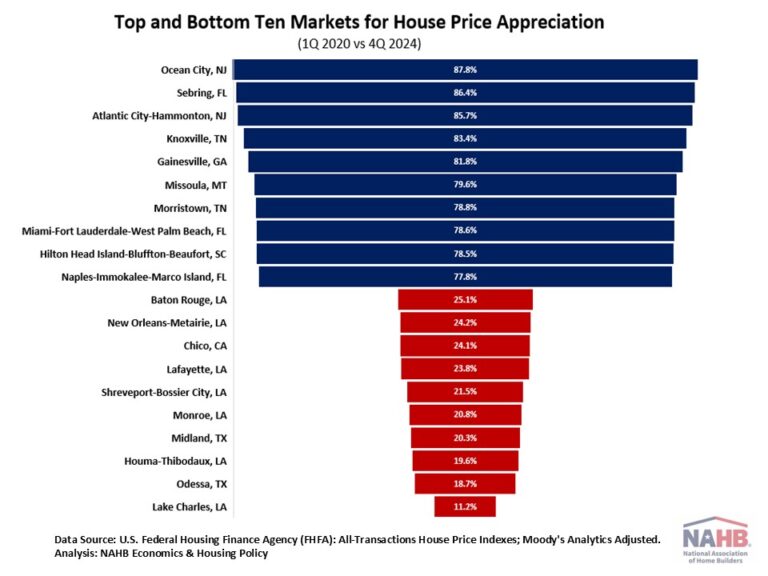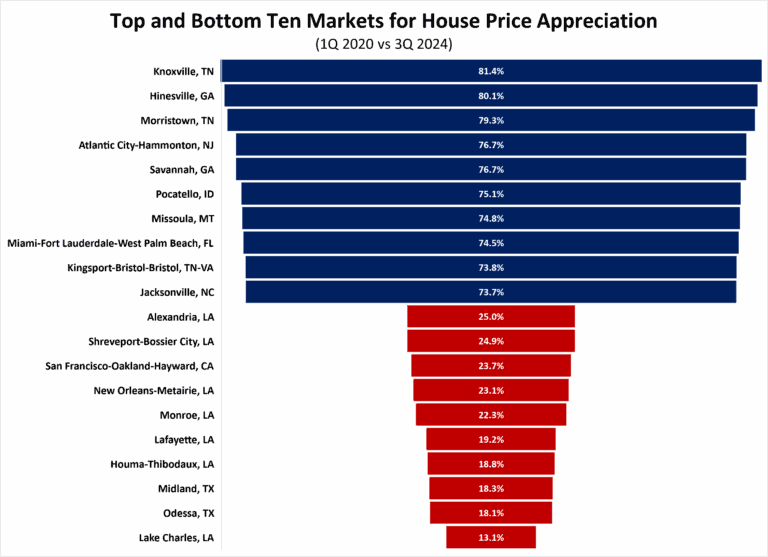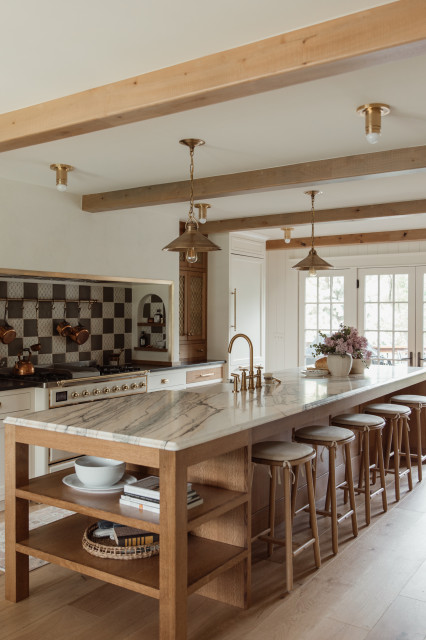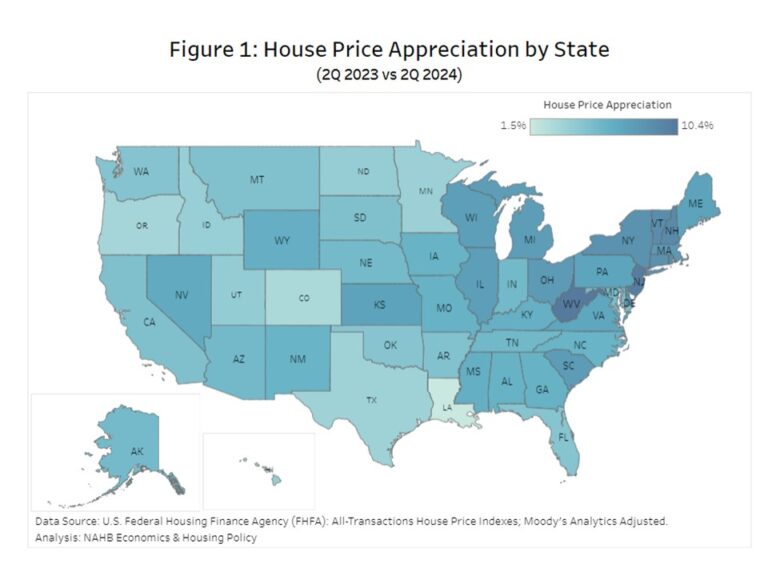If you’ve inherited a house, you might want to move right in, or take the opportunity to become a landlord and earn some steady rental income. But what if you don’t actually want the house, and would rather get rid of it?
Selling a home is always complicated, but selling an inherited home can add even more complexity to the equation. Everything from the specific wording of the will to the presence of a mortgage can impact how you unload an unwanted property. Here’s what to consider and what you should know about how to sell an inherited house.
Selling an inherited house
The details of how you came to own the property, and the nature of your ownership, play a big role in how to sell an inherited house. And don’t forget that, as the seller, you will be responsible for a certain amount of closing costs before you get your profits.
If you are the sole owner
The process of selling is easier if the home was bequeathed to you and you alone, or if you and the decedent (ie, your deceased loved one) were both listed as owners on the property. If the two of you were tenants in common or joint tenants with right of survivorship, you do not have to worry about probate or other legal processes — you’ll simply become the full owner of the home and can proceed to sell it as you like.
If you co-own it with others
In some cases, you may inherit the home along with other family members, such as siblings or cousins. If this happens, all joint owners of the property are jointly responsible for making decisions about it.
Mixing family and money can be stressful, especially during an emotional time when you have all lost a loved one. If it was your childhood home, the emotional attachment can make things even more challenging. It’s essential that you work together with your family to make sure everyone is on the same page, and to prevent hurt feelings.
“If there are other heirs involved in selling your inherited home, you may want to consult an attorney about the best way to handle these relationships and responsibilities during this process,” says real estate investor Shaun Martin, of Denver house-buying firm Watson Buys. “You may also want to discuss whether or not they will be contributing financially toward any repairs or renovations required before selling the property.”
Another option, especially if none of you are interested in living in the property, is to buy out the other heirs. You can offer to pay them for their share so that you become the sole owner of the property, which will make your future sale simpler.
The probate process
Probate is a legal process through which an estate’s assets are used to pay its creditors. The remainder is then handed down to heirs according to the decedent’s will or, in the event there is no will, according to state law. It can be a long and convoluted process.
Each state has a different process for probate, but it typically involves appointing an executor for the decedent’s estate. That person is responsible for following the terms of the will, managing the estate’s assets and seeing that they’re distributed properly to the beneficiaries.
It’s important that you follow the full probate process closely and don’t take possession of the home or try to sell it before you’re legally permitted to do so. Of course, if you’re also the executor of the estate, that simplifies matters.
Once ownership of the home has legally been transferred to you, you can begin the sale process. However, you shouldn’t expect any of this to happen right away.
“Probate can be a lengthy and complex process, often taking several months to years, depending on the size and complexity of the estate,” says Steven Parangi, an attorney and loan originator with Alpine Mortgage Services in Rochelle Park, NJ. “It can also be costly, with fees for the court, attorneys and appraisers. However, probate ensures that the decedent’s wishes are honored and that the estate is settled in an orderly manner.”
Does the home still have a mortgage?
Whether the inherited home has a mortgage or is fully paid off also impacts how selling it works.
If there is a mortgage
If there’s a mortgage on the home and the decedent was the sole person on it, it is the responsibility of the estate to continue making loan payments. That means the executor of the estate has to determine how to continue making mortgage payments from the estate’s assets.
When you inherit a home with a mortgage, whether through the probate process or otherwise, you will also have to assume the mortgage. This means making the monthly payments yourself, whatever they may be. Reach out to the lender to determine the logistics of getting the property and loan under your own name — an important part of being able to dispose of it. Once you’ve done that, you can sell the home.
If there is no mortgage
If there’s no mortgage on the home, the process is simpler: No need to worry about loan repayments. However, as the home’s new owner, you will still need to pay property taxes and utilities. (The decedent’s estate may provide funds to cover these expenses, so be sure to check.)
As part of inheriting the home you’ll need to work with the local property records offices to get the deed to the home put in your name and to set up utility accounts in your name. Once that’s done, you can sell the home.
What condition is the home in?
If the home is in good condition, or in a desirable location, a traditional sale working with a local real estate agent will likely get you the best price. If you can find an agent with experience selling inherited homes, all the better — they can help you strategize the best selling approach and walk you through all your options.
For inherited properties, it can be smart to spend a few hundred dollars on a pre-listing home inspection. This will clue you in to any problems or necessary repairs that you might not know about, since it was not your home.
But if it’s in poor shape or extremely dated, the circumstances are different. in this case, you’ll need to either:
Invest in repairs and upgrades before lising it
Sell it as-is, effectively telling buyers that any work needed will be their responsibility
Sell to a cash-homebuying company that buys houses in any condition
Selling as-is or to a cash-homebuying firm won’t require as much effort, time or money as renovating would. But it does have a major downside: It will not earn you as high a price as you would likely get selling the traditional way.
Tax implications of selling an inherited house
Selling any property for a large profit has the potential to trigger real estate capital gains taxes. However, inherited properties are unique in that, while you now own the home, you are not the one who bought it. A lot depends on how much the decedent paid for the house in the first place, and how much the home’s value has appreciated since then.
To know if you will have to pay capital gains tax on your profits from selling an inherited home, you must calculate the profit: This is done by subtracting the cost basis (or original cost) of the home from the price you sold it at.
Typically, the cost basis for a property is the price paid to purchase it, plus any substantial sums spent to improve it. However, when you inherit property, the cost basis is typically “stepped up,” or adjusted, to be the fair market value of the property on the date of the decedent’s death. (In some cases it might also be the fair market value on an alternate valuation date, such as the date the executor filed an estate tax return.)
“When a person inherits property, they receive a ‘stepped-up’ basis, meaning the property’s tax basis is adjusted to its fair market value at the time of the previous owner’s death,” says Parangi. “This is significantly advantageous for the heir, as it can substantially reduce or eliminate capital gains taxes when the property is sold.” (There are some exceptions to the stepped-up basis, so it’s smart to consult a tax expert.)
Parangi offers this example: “If a parent purchased a home for $100,000 and it’s worth $500,000 at the time of their death, the heir’s basis becomes $500,000, not the original $100,000.” Thus, if you as your parent’s heir sell the home for $550,000, your taxable profit would be $50,000, not $450,000.
To determine a property’s value at the time of the decedent’s passing, you’ll need what’s known as a date of death appraisal (sometimes called a time of death appraisal). This “provides a clear and defensible valuation of the property, which can be beneficial in various scenarios, such as settling disputes among heirs or dealing with the IRS,” says Parangi.
FAQs
Should I sell or keep my inherited house?
It depends on your personal circumstances. If you want to live in the home or use it as a rental property, keeping it obviously makes sense. If you don’t want to do either — or if it needs significant work that you don’t want to commit to — selling it will make more sense. Take stock of your emotional attachment to the property, if any, and how you would feel if it were no longer in the family. If you think you want to sell, talk to a local real estate agent about how much the house is worth in today’s market.
Do I have to pay capital gains taxes on a property I inherited?
You may owe capital gains on inherited property — but only after you sell it. The gain is based on the difference between the final sale price and the cost basis of the property, typically the fair market value of the home on the day the decedent died. However, even if you sell for a profit, you may not owe capital gains tax. There are a lot of factors that depends on, including exactly how much money you earn on the sale and whether you file taxes individually or jointly with a spouse.
How fast can I sell a house I inherited?
Before you can sell you must have legal ownership, which can take quite a while if the inheritance must go through the probate process. Once you can legally sell, how long that takes depends on your local market conditions and how you choose to sell. Selling to a local cash-homebuying company can take just a couple weeks, or sometimes less. Using an agent will certainly take longer than that, but is likely to get you a higher price for the home.












